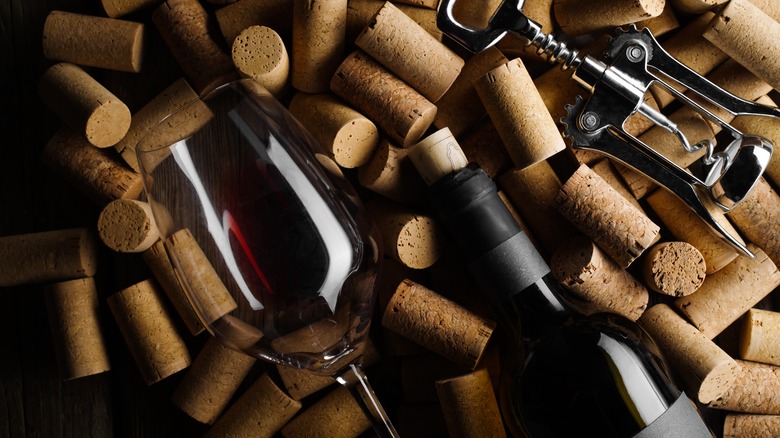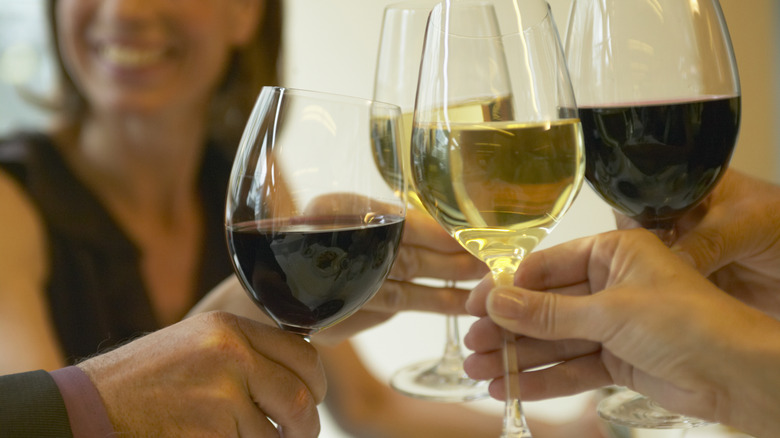The Sneaky Vineyard Trick That Made Wine A Cinch During Prohibition
From 1920 to 1933, liquor sales were banned in the United States following the addition of the 18th Constitutional Amendment, per History. Christian forces were at the forefront of this decision, as many saw alcohol as a threat to families and an increase in accidents, poverty, and crime (via History Extra). Of course, this decision backfired, as the 21st Amendment reversed prohibition in as little as 13 years. Instead of stopping crime, crime skyrocketed. According to Mirror, this period of time saw a great increase in profits for gangsters who sold alcohol illegally and opened speakeasies.
Speakeasies were created as a way around the alcohol ban, and they were generally located in secret rooms where a password was required for entry. Per historian Jonathon Porter, an estimate 100,000 speakeasies popped up in New York alone. The American liquor industry started searching for ways around the rules, which they were able to find as far as the wine industry goes.
Warning labels allowed vineyards to be sneaky
Prohibition backfired in a slew of ways, though its effect on the economy was definitely a noticeable one. According to PBS, liquor taxes made up 75% of New York's revenue before the ban. Federally, prohibition cost $300 million in enforcement and $11 billion in lost taxes. Arguably still, breweries and other alcohol producers saw the brunt of it, causing thousands to lose their jobs as businesses shuttered their doors.
Some innovative producers were able to find a solution. Per Prohibition, vineyards switched from bottled wine to raisin cakes made of dried grape. This made it possible to create wine at home; all it took was a little bit of time for the grapes to ferment. In Edward Behr's book, "Prohibition: Thirteen Years That Changed America," Beringer Vineyards were the first to implement this idea, and they did so with a "warning" label so that the consequences seemed unintentional (via The Mercury News). As for wine drinkers today, you should count your blessings that you didn't have to wait weeks to enjoy your wine.

